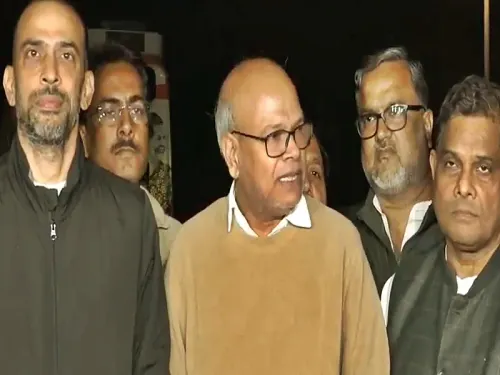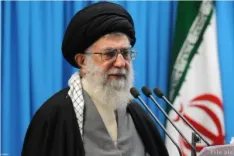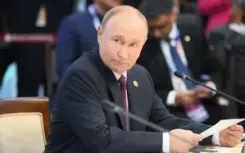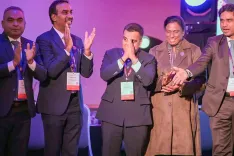Is the Supreme Court's Ruling on Minor Muslim Marriages Justified?
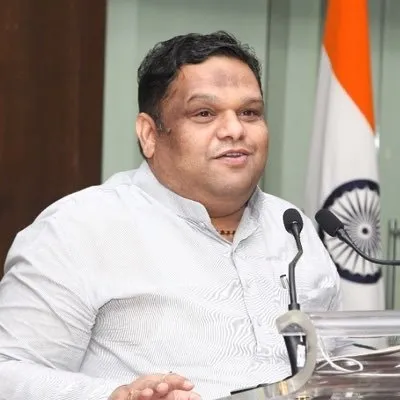
Synopsis
Key Takeaways
- The Supreme Court ruling validates minor marriages under Muslim Personal Law.
- Priyank Kanoongo expresses serious concerns about child protection.
- POCSO Act guidelines are crucial for safeguarding minors.
- Legal interpretations of consent for minors can have dire consequences.
- There is an ongoing debate about the intersection of religion and child rights.
New Delhi, Aug 19 (NationPress) Priyank Kanoongo, the former chairperson of the National Commission for Protection of Child Rights (NCPCR), expressed his shock and astonishment on Tuesday regarding a ruling by the Supreme Court that deemed the marriage of a minor Muslim girl valid under Muslim Personal Law.
Kanoongo, now a member of the National Human Rights Commission (NHRC), took to social media platform X to voice his concerns, stating that this decision was comparable to governing the nation under Sharia law.
He pointed out that while the court based its decision on the consent of minors, it overlooked the established guidelines of the POCSO Act. This law, enacted by Parliament, is designed to protect children from sexual assault, harassment, and pornography.
Labeling the ruling as alarming, he mentioned that another similar case is set to be heard on Wednesday, which has caused him significant worry.
“If minors are granted consent to engage in sexual activities, it could lead to devastation. God must safeguard the children of India,” he stated in his post.
According to a prominent legal news portal, the Supreme Court dismissed a Special Leave Petition from the NCPCR, which contested the 2022 ruling of the Punjab and Haryana High Court. This ruling affirmed that a 16-year-old Muslim girl could legally marry a Muslim man and protected the couple from threats.
The NCPCR's objections to this judgment were rejected by the court, citing that it lacked standing in the case.
The High Court granted the couple protection, noting that the girl, having reached puberty, is considered of marriageable age under Muslim Personal Law.
In his post on X, Priyank Kanoongo revealed that he had contested the High Court's decision in the Supreme Court, leading to a stay order being issued.
During his tenure at the NCPCR, the child rights organization argued that under the POCSO Act, engaging in physical relations with a minor constitutes a crime, and permitting the sexual exploitation of underage girls based on religious grounds contradicts the constitutional principles of secularism.


